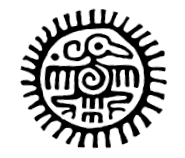Week of August 2nd, 2018
You're Invited
My first invitation: Weed out the wishy-washy wishes and lukewarm longings that keep you distracted from your burning desires.My second invitation: Refuse to think that anyone else knows better than you what dreams will keep your life energy humming with maximum efficiency and grace.
Third invitation: Say this out loud to see how it feels: "I know exactly what I want. I know exactly what I don't want. I know exactly what I kind of want but I won't waste my time on it because it sidetracks me from working on what I really want."

My book
Pronoia Is the Antidote for Paranoia is available at Amazon and Powells.
Below are excerpts.
GOOD PROBLEMS
Is there anything more dangerous than getting up in the morning and having nothing to worry about, no problems to solve, no friction to heat you up? That state can be a threat to your health, because if untreated it incites an unconscious yearning for any old dumb trouble that might rouse some excitement.
Acquiring problems is a fundamental human need. It's as crucial to your well-being as getting food, air, water, sleep, and love. You define yourself--indeed, you make yourself--through the riddles you attract and solve. The most creative people on the planet are those who frame the biggest, hardest questions and then gather the resources necessary to find the answers.
Conventional wisdom implies that the best problems are those that place you under duress. There's supposedly no gain without pain. Stress is allegedly an incomparable spur for calling on resources that have been previously unavailable or dormant. Nietzsche's aphorism, “That which doesn't kill me makes me stronger,” has achieved the status of an ultimate truth.
I half-agree. But it's clear that stress also accompanies many mediocre problems that have little power to make us smarter. Pain frequently generates no gain. We're all prone to become habituated, even addicted, to nagging vexations that go on and on without rousing any of our sleeping genius.
There is, furthermore, another class of difficulty--let's call it the delightful dilemma--that neither feeds on angst nor generates it. On the contrary, it's fun and invigorating, and usually blooms when you're feeling a profound sense of being at home in the world. The problem of writing my book is a good example. I've had a good time handling the perplexing challenges with which it has confronted me.
Imagine a life in which at least half of your quandaries match this profile. Act as if you're most likely to attract useful problems when joy is your predominant state of mind. Consider the possibility that being in unsettling circumstances may shrink your capacity to dream up the riddles you need most; that maybe it's hard to ask the best questions when you're preoccupied fighting rearguard battles against boring or demeaning annoyances that have plagued you for many moons.
Prediction: As an aspiring lover of pronoia, you will have a growing knack for gravitating toward wilder, wetter, more interesting problems. More and more, you will be drawn to the kind of gain that doesn't require pain. You'll be so alive and awake that you'll cheerfully push yourself out of your comfort zone in the direction of your personal frontier well before you're forced to do so by divine kicks in the ass.

ETERNAL WELCOME
"Some people have a wonderful capacity to appreciate again and again, freshly and naively, the basic goods of life, with awe, pleasure, wonder, and even ecstasy."
- Abraham H. Maslow

TWO KINDS OF HOPE
Sometimes hope is an irrelevant waste of time, even a stupid self-indulgence. Let's say, for instance, that I'm intently hoping that a certain disagreeable person I've got to communicate with won't answer when I call on the phone. That way I can simply leave a message on his voice mail and avoid an unpleasant exchange. But it doesn't matter what I hope. The guy will either answer or not, regardless of what I hope.
But there is another kind of hope that's potentially invigorating. Let's say I hope that we humans will reverse the environmental catastrophes we're perpetrating. Let's say that my hope motivates me to live more sustainably and to inspire others to live more sustainably. Then my hope is a catalyst.
I invite you to give two examples from your life about the two kinds of hope.

BEGINNER'S MIND AND BEGINNER'S HEART
To achieve what the Zen Buddhists call "beginner's mind," you dispense with all preconceptions and enter each situation as if seeing it for the first time. "In the beginner's mind there are many possibilities," wrote Shunryu Suzuki in his book Zen Mind, Beginner's Mind, "but in the expert's there are few."
As much as I love beginner's mind, though, I advocate an additional discipline: cultivating a beginner's heart. That means approaching every encounter imbued with a freshly invoked wave of love that is as pure as if you're feeling it for the first time.

MUTUAL AID SOCIETY
If you would like to support my ongoing work, please visit my Virtual Tip Jar at Paypal.
You can also contribute to my well-being by buying the Expanded Audio Horoscopes I create every week. These forecasts are different in tone and content from the written horoscopes I provide here. They're my four- to five-minute-long ruminations about the current chapter of your life story. They're available here.

WHAT NOURISHES YOU EMOTIONALLY AND SPIRITUALLY?
I'm not talking about what entertains you or flatters you or takes your mind off your problems.
I'm referring to the influences that make you stronger and the people who see you for who you really are and the situations that teach you life-long lessons.
I mean the beauty that replenishes your psyche and the symbols that consistently restore your balance and the memories that keep feeding your ability to rise to each new challenge.
I invite you to take inventory of these precious assets. And then make a special point of nurturing them back.

WHERE IS MAGIC?
I hope you can obtain the Avatar Elixir stashed in the golden obelisk in the underground fortress beneath the glass mountain. It will allow you to produce the "triple-helix" energy that will give you the power to cross freely back and forth through the gateway between universes.
Then wild creatures will seek out your influence. Rivers and winds will become your allies. The cells of your body will communicate with you clearly and joyfully. Every star in the sky will shine directly on you.
And if for some reason you're not able to get your hands on that Avatar Elixir, you may be able to achieve similar results by drinking a bottle of beer stashed in the lower left rear section of the beverage cooler at a convenience store within five miles of your home.
Magic might be wherever you think it is.

"I love you not only for what you are, but for what I am when I am with you. I love you not only for what you have made of yourself, but for what you are making of me. I love you for the part of me that you bring out."
- Erich Fried

THE SEASONS OF ROT AND REGENERATION
Each one of us is a blend of life and death. In the most literal sense, our bodies always contain old cells that are dying and new cells that are emerging as replacements.
From a more metaphorical perspective, our familiar ways of seeing and thinking and feeling are constantly atrophying, even as fresh modes emerge. Both losing and winning are woven into every day; sinking down and rising up; shrinking and expanding.
In any given phase of our lives, one or the other polarity is often more pronounced. But sometimes they are evenly balanced; the Seasons of Rot and of Regeneration happen at the same time.
Where are you at in the cycle right now?

IT'S ALL ALIVE
Yua is a term the Yupiit people of Alaska use for the spirit that inhabits all things, both animate and inanimate. A rock, for instance, has as much yua as a caribou, spruce tree, or human being, and therefore merits the same measure of compassion.
If a Yupiit goes out for a hike and spies a chunk of wood lying on a frozen river bank, she might pick it up and put it in a new position, allowing its previously hidden side to get fresh air and sun. In this way, she would bestow a blessing on the wood's yua.
(Source: Earl Shorris, "The Last Word," Harper's, August 2000)

WHAT PRONOIA PROMISES YOU
Pronoia doesn't promise uninterrupted progress forever. It's not a slick commercial for a perfect summer day that never ends.
Grace emerges in the ebb and flow, not just the flow.
The waning reveals a different kind of blessing than the waxing.
But whether it's our time to ferment in the valley of shadows or rise up singing in the sun-splashed meadow, fresh power to transform ourselves is always on the way.
Our suffering won't last, nor will our triumph.
Without fail, life will deliver the creative energy we need to change into the new thing we must become.

USEFUL REVERENCE
Reverence is one of the most useful emotions. When you respectfully acknowledge the sublime beauty of something greater than yourself, you do yourself a big favor. You generate authentic humility and sincere gratitude, which are healthy for your body as well as your soul.
Please note that reverence is not solely the province of religious people. A biologist may venerate the scientific method. An atheist might experience a devout sense of awe toward geniuses who have bequeathed to us their brilliant ideas.
What about you? What excites your reverence? I invite you to explore the deeper mysteries of this altered state of consciousness.

TH PEOPLE I TRUST THE MOST
The people I trust the most are those who are always tenderly wrestling and negotiating with their own shadows, making preemptive strikes on their personal share of the world's evil, fighting the good fight to keep from spewing their darkness on those around them. I aspire to be like that, which is why I regularly kick my own ass.
How-to-kick-your-own-ass lessons are available at 2:20 of this video:
How-to-kick-your-own-ass lessons are also available at 7:30 of this video:
Here's the "Kick Your Own Ass" anthem.

"I shiver, thinking how easy it is to be totally wrong about people, to see one tiny part of them and confuse it for the whole."
- Lauren Oliver
+
"We die to each other daily. What we know of other people is only our memory of the moments during which we knew them. And they have changed since then. To pretend that they and we are the same is a useful and convenient social convention which must sometimes be broken. We must also remember that at every meeting we are meeting a stranger."
- T. S. Eliot, "The Cocktail Party"

"The truest form of love is how you behave toward someone, not how you feel about them."
- Steve Hall
An interviewer urged the Dalai Lama to discourse on how to cultivate lovingkindness. His Holiness said, "That may be too much to ask. How about if we just work on getting the 'kindness' part right?"

It seems that we are more often frightened than hurt, and that we tend to suffer more from imagination than from reality. ”
—Lucius Annaeus Seneca

"Imaginal hygiene is the inner art of self-managing the imagination, to defend it from forces that compromise, pollute, colonize, shrink, and sterilize it, and to cultivate those that illuminate, expand, and nourish it."
The above is an excerpt from a wonderful piece by M. T. Xen, which I highly recommend.
You can also listen to my six-minute take on the power of your imagination.

















